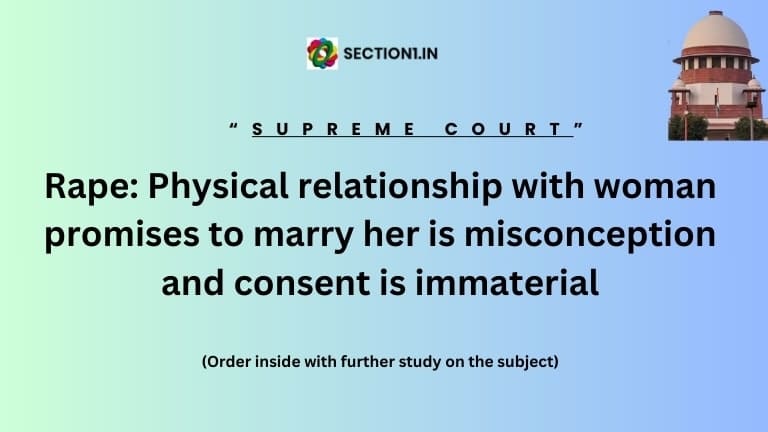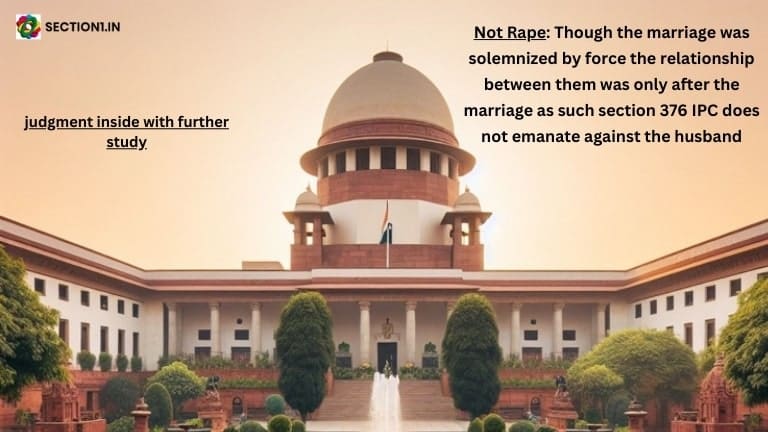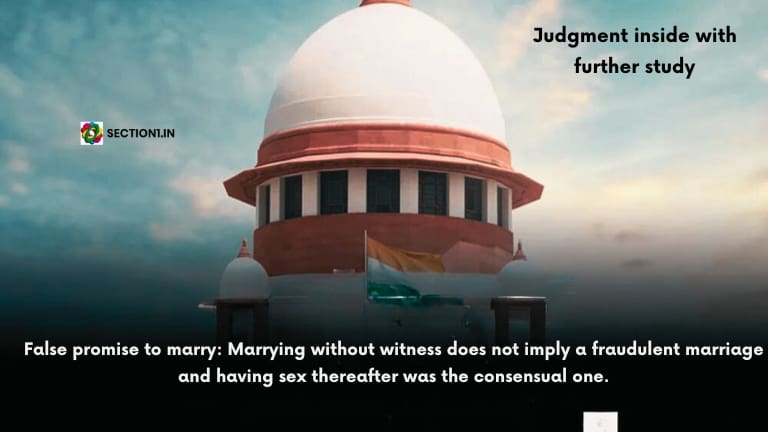1. Convicted and sentenced for the dastardly and most depraved of offences – the rape of his own 9-year-old daughter, the appellant is before this Court.
2. By judgment dated 18.02.2013 in Sessions Case No. 01 of 2013, the learned Additional Sessions Judge (Special Fast Track Court), Dwarka Courts, New Delhi, held the appellant guilty under Sections 376, 377 and 506 IPC. By order of sentence dated 23.02.2013, the appellant was imposed with imprisonment for life under Section 376 IPC and payment of fine of ₹25,000/-; imprisonment for life under Section 377 IPC and payment of fine of ₹25,000/-; and rigorous imprisonment for 2 years under Section 506 IPC along with payment of fine of ₹10,000/-. Default in payment of fines entailed further periods of imprisonment. In addition thereto, the learned Additional Sessions Judge directed that the appellant should not be given any clemency by the State before he spent at least 20 years in jail. In appeal, a Division Bench of the Delhi High Court upheld the appellant’s conviction and sentence, vide judgment dated 01.09.2017 in Criminal Appeal No. 1509 of 2014. Hence, this appeal by special leave under Article 136 of the Constitution.
xxx
VICTIM WAS MERELY 9 YEARS OF AGE AND WAS ALSO SUBJECTED TO CARNAL INTERCOURSE
6. Section 376(2) IPC, prior to its amendment with retrospective effect from 03.02.2013 by the Criminal Law (Amendment) Act, 2013, consisted of clauses (a) to (g). Section 376(2)(f), as it stood then, provided that whoever commits rape on a woman when she is under 12 years of age shall be punished with rigorous imprisonment for a term which shall not be less than 10 years but which may be for life and shall also be liable to fine. Section 377 IPC states that whoever voluntarily has carnal intercourse against the order of nature with any man, woman or animal shall be punished with imprisonment for life, or with imprisonment of either description for a term which may extend to 10 years, and shall also be liable to fine. It was in exercise of power under Sections 376(2)(f) and 377 IPC that the learned Additional Sessions Judge sentenced the appellant to life imprisonment, as the victim was merely 9 years of age and was also subjected to carnal intercourse against the order of nature. He, however, added the rider that the appellant should not be given clemency by the State until he spent at least 20 years in jail. In effect, the appellant was sentenced to life imprisonment of a minimum term of 20 years.
IMPRISONMENT OF LIFE – EXPLAINED
7. Imprisonment for life, in terms of Section 53 IPC read with Section 45 IPC, means imprisonment for the rest of the life of the prisoner, subject to the right to claim remission, etc., as provided under Articles 72 and 161 of the Constitution and under Section 432 Cr.P.C. In Gopal Vinayak Godse vs. State of Maharashtra [AIR 1961 SC 600], this Court held that a sentence of imprisonment for life must, prima facie, be treated as imprisonment for the whole of the remaining period of the convicted person’s natural life. In Maru Ram vs. Union of India [(1981) 1 SCC 107], a Constitution Bench endorsed this view and affirmed that a life sentence is nothing less than life-long imprisonment and would last until the last breath. Again, in Union of India vs. V. Sriharan alias Muruganand others [(2016) 7 SCC 1], another Constitution Bench reiterated that imprisonment for life means imprisonment for the rest of the life of the convict.
8. However, in actual practice, one finds that a sentence of life imprisonment works out only to a term of 14 years, in terms of Section 433 Cr.P.C., and may prove to be grossly inadequate to the gravity of the offence for which the convict had been so sentenced. In Swamy Shraddananda vs. State of Karnataka [(2008) 13 SCC 767], this Court noted that the days of remission earned by a prisoner are added to the period of his actual imprisonment to make up the term of the sentence and the question that then arises is how such remission can be applied to life imprisonment, as the way in which remission is allowed can only apply to a fixed term of imprisonment and life imprisonment, being for the rest of the life, is indeterminate by nature. It was observed that, in the States of Karnataka and Bihar, remission is granted to life convicts by ‘deemed’ conversion of life imprisonment into a fixed term of 20 years by executive orders issued by the State Government, flying in the face of a long line of decisions by this Court, and no provision of law exists sanctioning such a course. It was pointed out that life convicts are granted remission and released from prison upon completing a 14-year-term, without any sound legal basis, and one can safely assume that the position would be no better in other States. This Court, therefore, took judicial notice of the fact that remission is allowed to life convicts in the most mechanical manner without any sociological or psychiatric appraisal of the convict and without proper assessment as to the effect of an early release of a particular convict on the society. This Court also noted that grant of remission is the rule and remission is denied, one may say, in the rarest of rare cases. Faced with this conundrum, while commuting a death sentence to life imprisonment in that case, this Court pondered over what should be done in such a situation. It was observed that, if the option is limited only to two punishments -one, being a sentence of life imprisonment, for all intents and purposes, of not more than 14 years, and the other, death, the Court may feel tempted and find itself nudged into endorsing the death penalty and such a course would indeed be disastrous. It was therefore held that a far more just, reasonable and proper course would be to expand the options and to take over what, as a matter of fact, lawfully belongs to the Court, i.e., the vast hiatus between 14 years’ imprisonment and death, and substitute a death sentence by life imprisonment or by a term in excess of 14 years and, further, to direct that the convict must not be released from prison for the rest of his life or for the actual term as specified in the order, to this expanded option primarily because, in the facts of the case, the sentence of 14 years’ imprisonment would amount to no punishment at all.
xxx
10. In the light of this settled legal position, it was clearly not within the domain of the learned Additional Sessions Judge to impose a restriction that the term of the appellant’s life imprisonment should be for at least 20 years and that he should not be given any clemency till then. Such power could only be exercised by the High Courts or by this Court. No doubt, the Delhi High Court confirmed the sentence passed by the learned Additional Sessions Judge but mere affirmation of the hollow exercise of a power, that was not conferred, by the learned Additional Sessions Judge does not qualify as an independent exercise by the High Court and would not suffice in terms of the legal requirement. It is only the High Courts or this Court that would have the power, upon proper application of mind, to take recourse to special category sentencing, depending upon the nature of the offence and its gravity. To that extent, the sentence imposed by the learned Additional Sessions Judge was, therefore, without legal basis.
FACT STILL REMAINS THAT THE APPELLANT IS GUILTY OF THE MOST HEINOUS OF OFFENCES VIZ., THE RAPE OF HIS OWN LITTLE DAUGHTER
11. That being said, the fact still remains that the appellant was held guilty of the most heinous of offences, viz., the rape of his own little daughter. The trust and faith that a young girl would repose in her father and the sanctity of the very relationship were destroyed by his debauched and devastating acts. In such a situation, allowing him the freedom to seek liberal remissions, so as to cut short his life imprisonment, would be nothing short of a travesty of justice. Significantly, Section 376 IPC was amended with retrospective effect from 03.02.2013. The amended provision now reads very differently. Section 376(2) IPC has been enlarged and presently comprises clauses (a) to (n). The new Section 376(2)(f) states that whoever, being a relative, guardian or teacher of, or a person in a position of trust or authority towards the woman, commits rape on such woman, shall be punished with rigorous imprisonment for a term which shall not be less than 10 years, but which may extend to imprisonment for life, which shall mean imprisonment for the remainder of that person’s natural life, and shall also be liable to fine. Further, Section 376(3) has been inserted in the statute book and it provides that whoever commits rape on a woman under 16 years of age shall be punished with rigorous imprisonment for a term which shall not be less than 20 years, but which may extend to imprisonment for life, which shall mean imprisonment for the remainder of that person’s natural life, and shall also be liable to fine. It may also be noted that the new Sections 376A, 376D and 376E, brought into the statute book by the Criminal Law (Amendment) Act, 2013, and the new Sections 376AB, 376DA and 376DB inserted therein by the Criminal Law (Amendment) Act, 2018, provide for the enlarged punishment of life imprisonment for the remainder of the convict’s natural life.
LENGTHIEST PUNISHMENT AVAILABLE IN LAW
15. The above observations manifest the applicability of the same principle in cases where the maximum punishment prescribed by law is imprisonment for life with nothing further. Even in such cases, it would be a parody of justice to allow the convicts so sentenced to avail the benefit of remissions and the like, liberally conferred by the State, and cut short the length of their life sentence to a mere 14 years. We are, therefore, of the considered opinion that the law laid down in Swamy Shraddananda (supra)and V. Sriharan(supra)with regard to special category sentencing to life imprisonment in excess of 14 years by fixing a lengthier term would be available to the High Courts and this Court, even in cases where the maximum punishment, permissible in law and duly imposed, is life imprisonment with nothing further. We must, however, hasten to add that exercise of such power must be restricted to grave cases, where allowing the convict sentenced to life imprisonment to seek release after a 14-year-term would tantamount to trivializing the very punishment imposed on such convict. Needless to state, cogent reasons have to be recorded for exercising such power on the facts of a given case and such power must not be exercised casually or for the mere asking.
SINCE THE VICTIM IS IN HER 20’S THERE IS EVERY CHANCE THERE SHALL BE A RE-ENTRY OF ACCUSED IF PUT TO JUST 14 YEARS IN JAIL AND HENCE TO IMPOSE A SPECIAL CATEGORY SENTENCE OF FIXED-TERM LIFE IMPRISONMENT
16. In the case on hand, the appellant was found guilty of one of the most monstrous and horrific of offences, viz, the physical violation of his own daughter, who was not even in the first flush of youth. In the event he secures release after putting in just 14 years in jail, his possible re-entry into his daughter’s life, while she is still in her twenties, may cause her further trauma and make her life difficult. His incarceration for a sufficiently long period would not only ensure that he receives his just deserts but also allow his daughter more time and maturity to settle down and move on with her life, even if her villainous father is set at liberty. We are, therefore, of the opinion that this is a fit and deserving case for exercise of the power vesting in this Court to impose a modified special category sentence of fixed-term life imprisonment. As pointed out by this Court in Madan Gopal Kakkad Vs. Naval Dubey and another7,Judges who bear the sword of justice should not hesitate to use that sword with utmost severity to the full and to the end, if the gravity of the offence so demands.
LIFE IMPRISONMENT FOR A MINIMUM OF 20 YEARS BEFORE HE CAN SEEK REMISSIONS
17. The ends of justice would be sufficiently served if the life imprisonment of the appellant is for a minimum of 20 years of actual incarceration before he can seek remissions under the provisions of the Code of Criminal Procedure, 1973, or any other enacted law. We, accordingly, direct so. Imposition of fines and imprisonment in default of payment thereof shall stand confirmed.
PARTY: Ravinder Singh vs. The State Govt. of NCT of Delhi….Respondent (s) – Criminal Appeal No. 1031 of 2023 (@ Special Leave Petition (Crl.) No. 1214 of 2018) – April 25, 2023.
https://main.sci.gov.in/supremecourt/2017/40617/40617_2017_13_1501_43950_Judgement_25-Apr-2023.pdf






